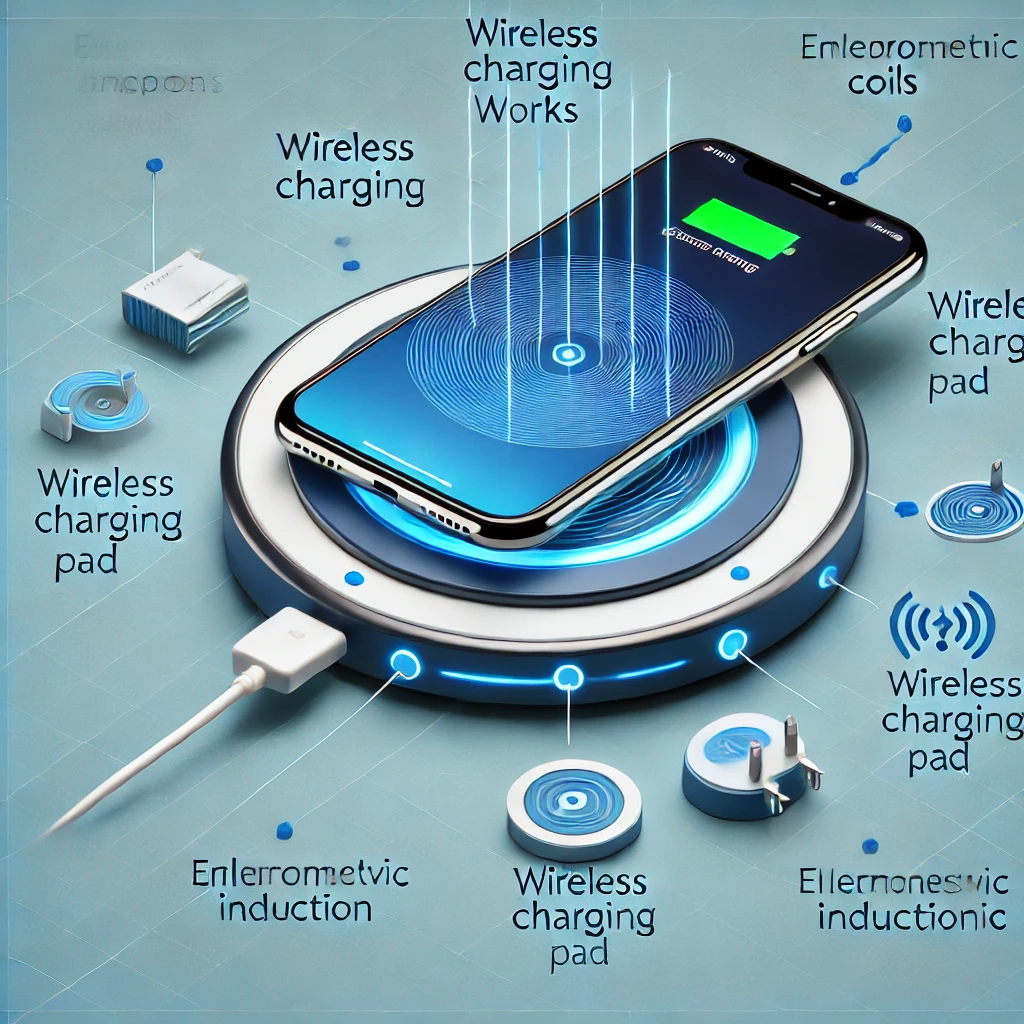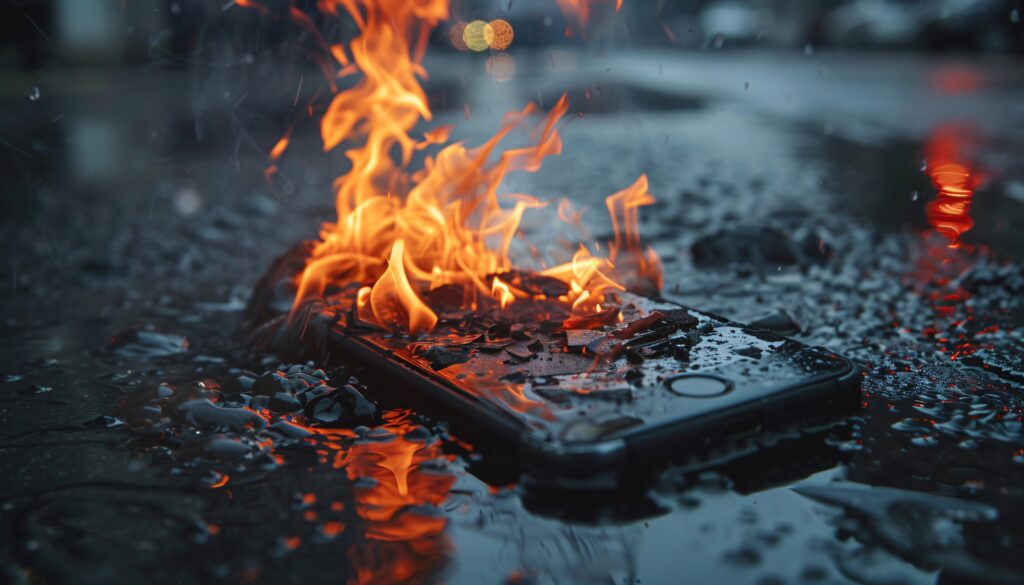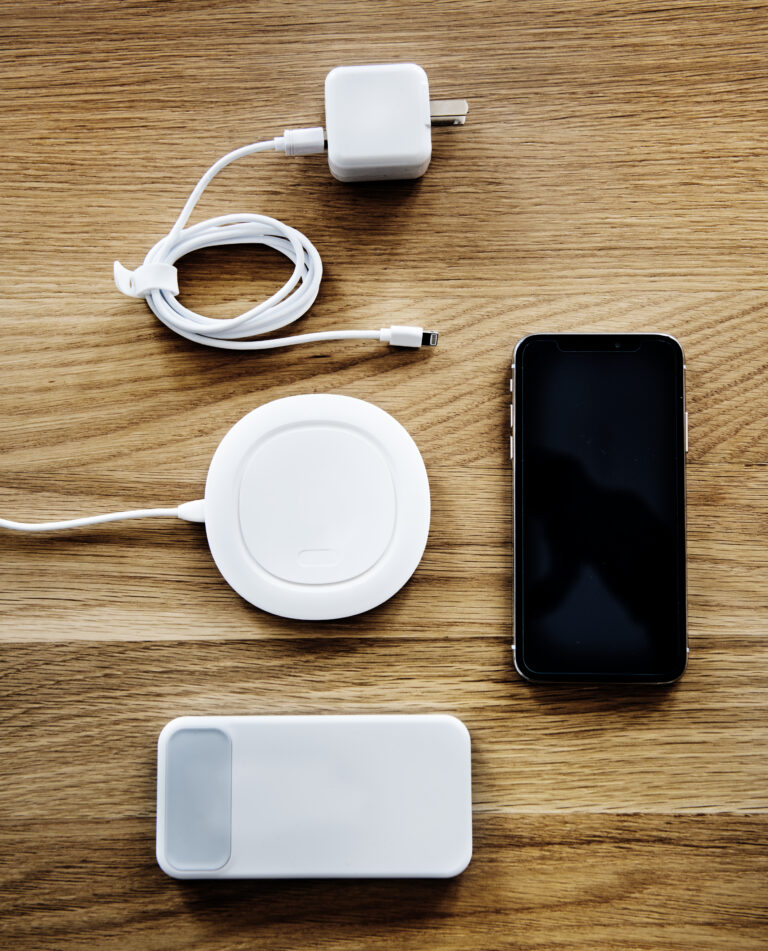Table of Contents
ToggleIntroduction
Your phone’s buzzing on that wireless charger, and a little worry creeps in—could this cord-free magic be secretly zapping your battery’s life? You’re not alone in wondering! Over 80% of new smartphones in 2024 support wireless charging, and millions of these pads flew off shelves last year. Some folks swear it’s a battery killer, while others call it a worry-free wonder. The truth’s hiding in the facts, not the rumors—and it’s juicier than you think. Let’s dive into the science, bust some myths, and settle the debate on whether wireless charging is your battery’s buddy or a sneaky foe. Stick around—you’ll be shocked at what we find!
How Wireless Charging Works

A cordless power-up feels like pure magic—that’s wireless charging stealing the show! Over 1 billion devices worldwide leaned on this tech by 2023, turning sci-fi dreams into everyday reality. Here’s the easy breakdown: a tiny coil in your charger sends energy through a magnetic field to a matching coil in your phone, juicing up the battery without a plug in sight. It’s clean, simple, and safe—no zaps for you, just power for your device. The secret’s in those coils and some clever engineering. Let’s unpack this step-by-step—you’ll love seeing what’s humming under that sleek pad!
The Battery Life Concern – Where Did It Come From?
A friend’s warning rings in your ears: wireless charging might be cooking your battery! It’s a common scare, but the truth’s less dramatic. People whisper that it overheats phones, drains battery life fast, or overcharges them into an early grave. Here’s the scoop: lithium-ion batteries—the kind in your phone—handle about 300 to 500 full charges before they start fading. Wireless charging doesn’t trash them outright, but it can warm things up, and heat’s no friend to batteries. Studies peg wireless charging at 5–15% more energy lost as heat compared to cables. The myth’s got legs, but the facts tell a fuller story—keep reading to sort it out!
The Science of Battery Health
Your phone’s battery fading after a couple of years isn’t a mystery—it’s pure science at work! Lithium-ion batteries power your device like a champ, recharging 300 to 500 times before they tire out—imagine a sponge slowly losing its bounce. Heat’s the big bad guy, quietly roasting the battery’s guts and speeding up wear. Charging habits play a role too—draining to 0% or leaving it plugged in 24/7 stresses it out. Most phones have a Battery Management System, a smart little guard that blocks overcharging. Wireless charging steps into this mix—let’s see how it dances with these rules next!
Factors That Affect Battery Life

Your phone’s battery is a superhero with a few kryptonite quirks—that’s what keeps its powers in check! Heat tops the list—leave it sizzling in the sun or on a toasty charger, and temps above 95°F (35°C) can shave months off its life, experts warn. Charging habits sneak in too—hitting 0% to 100% too often wears it down, while 20% to 80% keeps it chill, per studies. Speed’s another twist—fast charging, wired or wireless, pumps energy quick but can strain the battery harder. Crazy how these little things add up—let’s see where wireless charging lands in this lineup!
Does Wireless Charging Harm Batteries? The Evidence

The moment of truth arrives—wireless charging’s rap sheet is under the spotlight! Heat’s the snag—wireless chargers lose 5–15% more energy as warmth than cables, and lab tests show that lingering heat can nudge battery life down over time. But hold up: it’s not the villain you might think. Your phone’s smart system cuts off overcharging, and brands like Apple and Samsung swear their gear’s built for it. Some studies hint that years of wireless heat might age a battery a tad faster—think a 5% drop after 500 cycles. The evidence is clear, but the twist is wild—keep going to see what it really means! Picture by freepick.com
Debunking the Myths
Wireless charging’s got a bad rap—time to smash those myths to bits! Myth 1: it overcharges your phone—nah, modern tech stops at 100% and takes a breather. Myth 2: it’s a battery assassin—not quite, heat’s the real culprit, and wired charging can cook too. Myth 3: cables always win—wrong again, fast wired charging stresses batteries just as much. The truth’s simpler than the rumors—it’s how you charge, not the method, that counts. These busted myths flip the script—stick with me to nail down the real deal!
Practical Tips to Protect Your Battery with Wireless Charging
Your phone’s battery can thrive with wireless charging—here’s the smart way to do it! Grab a Qi-certified charger with cooling tricks like vents or fans—cheap ones can push heat past 95°F (35°C), a battery’s danger zone. Skip thick cases while charging to let heat slip away, and keep it out of the sun. Pro move: charge from 20% to 80%—studies say this cuts battery stress by up to 30%. Turn on “smart charging” if your phone’s got it—it’s like a babysitter for your battery. Easy tweaks like these make a big difference—let’s master them next!
The Verdict
The wireless charging mystery unravels—here’s the straight-up truth! Studies prove it doesn’t ruin your battery on its own—keep heat below 95°F (35°C), and you’re golden. It’s not the tech; it’s the habits—cheap chargers or roasting your phone in a hot spot are the real troublemakers. With a solid charger and smart moves, that cord-free vibe’s a worry-free win. Over 1 billion devices rocked wireless charging by 2023, and the numbers say it’s safe when done right. The verdict’s in—now let’s nail down how to keep your battery thriving!
Frequently Asked Questions
Overnight Charging?
Totally fine—phones stop at 100% and sip power to stay full, though hours of heat might nudge wear up a bit.
Fast Wireless vs. Regular?
Fast can push temps past 104°F (40°C), stressing batteries more—standard speed’s cooler and kinder, experts note.
Wireless vs. Wired Wear?
No big gap—both hit 300–500 cycles if heat’s low; it’s the charger quality that tips the scale.
Using Phone While Charging?
It’s cool, but gaming or streaming heats it up—extra warmth can trim battery life over time.
Cheap Chargers a Risk?
Yep—non-certified ones overheat or charge wonky, stressing batteries. Qi-certified keeps it smooth.
